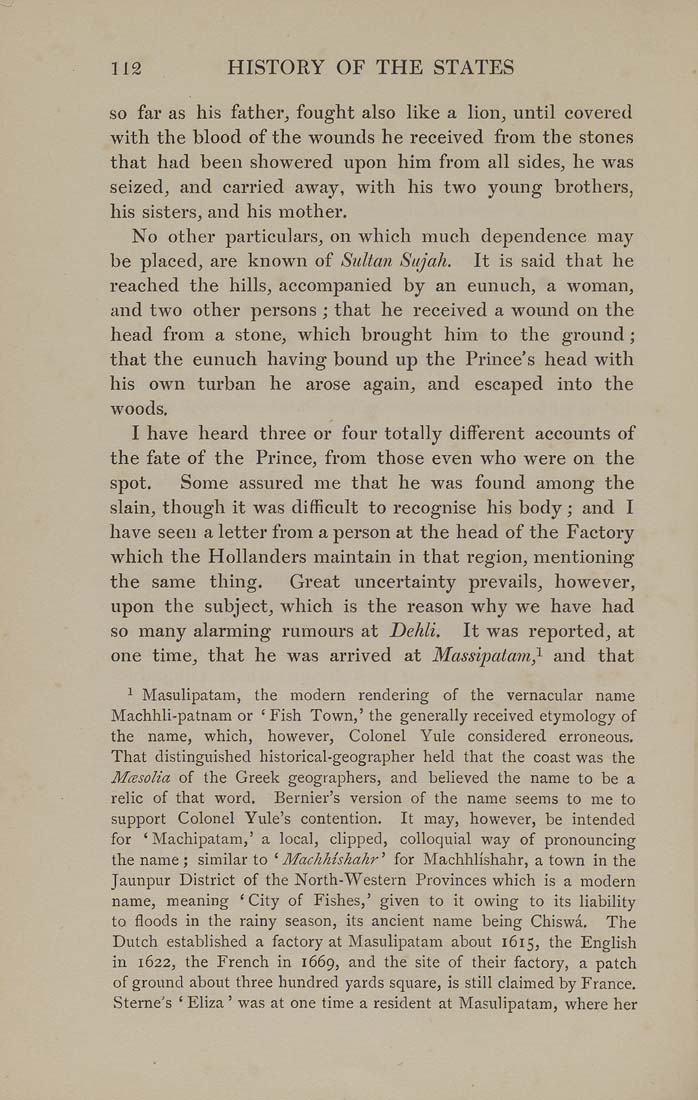112 HISTORY OF THE STATES
so far as his father, fought also like a lion, until covered
with the blood of the wounds he received from the stones
that had been showered upon him from all sides, he was
seized, and carried away, with his two young brothers,
his sisters, and his mother.
No other particulars, on which much dependence may
be placed, are known of Sultan Sujah. It is said that he
reached the hills, accompanied by an eunuch, a woman,
and two other persons ; that he received a wound on the
head from a stone, which brought him to the ground ;
that the eunuch having bound up the Prince's head with
his own turban he arose again, and escaped into the
woods.
I have heard three or four totally different accounts of
the fate of the Prince, from those even who were on the
spot. Some assured me that he was found among the
slain, though it was difficult to recognise his body; and I
have seen a letter from a person at the head of the Factory
which the Hollanders maintain in that region, mentioning
the same thing. Great uncertainty prevails, however,
upon the subject, which is the reason why we have had
so many alarming rumours at Dehli. It was reported, at
one time, that he was arrived at Massipatamj and that
! Masulipatam, the modern rendering of the vernacular name
Machhli-patnam or 'Fish Town,' the generally received etymology of
the name, which, however. Colonel Yule considered erroneous.
That distinguished historical-geographer held that the coast was the
Mcesolia of the Greek geographers, and believed the name to be a
relic of that word. Bernier's version of the name seems to me to
support Colonel Yule's contention. It may, however, be intended
for ' Machipatam,' a local, clipped, colloquial way of pronouncing
the name ; similar to ' Machhishahr' for Machhlishahr, a town in the
Jaunpur District of the North-Western Provinces which is a modern
name, meaning ' City of Fishes,' given to it owing to its liability
to floods in the rainy season, its ancient name being Chiswa. The
Dutch established a factory at Masulipatam about 1615, the English
in 1622, the French in 1669, and the site of their factory, a patch
of ground about three hundred yards square, is still claimed by France.
.Sterne's ' Eliza' was at one time a resident at Masulipatam, where her
|








